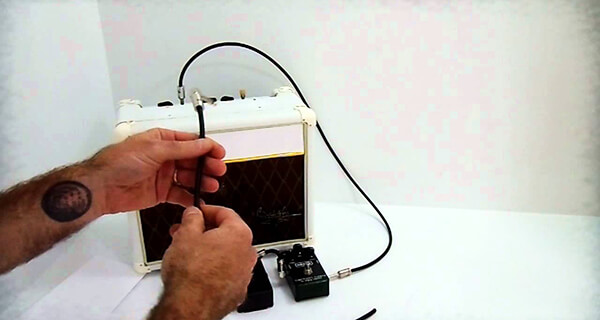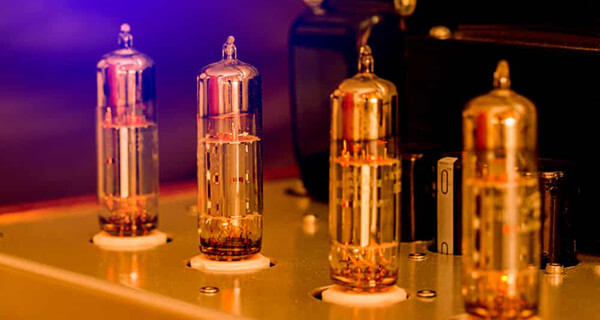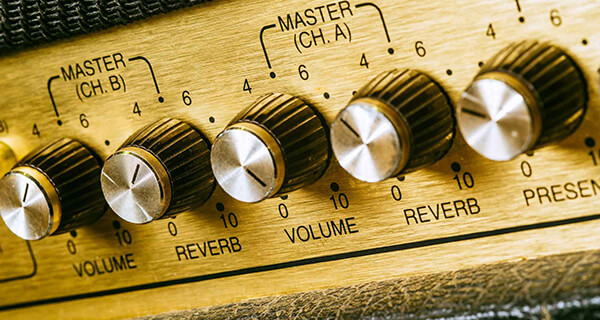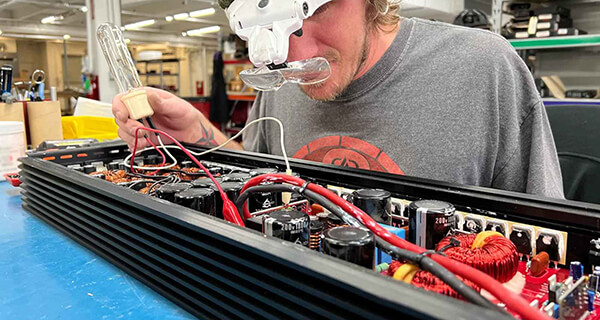Bass Amp Buzzing [Reason & Fixed]
There’s nothing more frustrating for a bass player than dealing with annoying buzzing sounds coming from their amplifier. Bass amp buzzing can be caused by various factors, ranging from simple issues like loose cables to more complex internal problems.

In this comprehensive guide, we will explore the most common reasons behind bass amp buzzing and provide effective solutions to help you resolve the issue and get back to playing with a clean and clear sound.
# Table of Contents =>
- 1 Reason & Fix: Bass Amp Buzzing Noise:
- 1.1 a) Check External Connections –
- 1.2 b) Test with Different Instruments and Cables –
- 1.3 c) Check for Grounding Issues –
- 1.4 d) Inspect the Amp’s Tubes (if applicable) –
- 1.5 e) Evaluate the Speaker and Cabinet –
- 1.6 f) Review the Amplifier’s Settings –
- 1.7 g) Consider External Interference –
- 1.8 h) Check for Internal Component Issues –
- 1.9 i) Update or Service the Amplifier –
- 1.10 j) Professional Help –
- 1.11 FAQs –
Reason & Fix: Bass Amp Buzzing Noise:
a) Check External Connections –
The first step in troubleshooting bass amp buzzing is to inspect all external connections. Ensure that all cables, including the instrument cable and power cord, are securely plugged into their respective jacks. Sometimes, buzzing can occur due to loose connections, so re-seating the cables can help eliminate this problem.
b) Test with Different Instruments and Cables –

If the external connections seem fine, the next step is to rule out any instrument or cable-related issues. Try using a different bass guitar and instrument cable to see if the buzzing persists. Sometimes, faulty cables or instruments with grounding issues can introduce unwanted buzzing into the signal chain.
c) Check for Grounding Issues –
Grounding problems are a common cause of bass amp buzzing. The signal on your bass guitar is not grounded properly. It can create a ground loop, leading to the buzzing sound. To check for grounding issues, try connecting your bass to a different amplifier or a direct box (DI) that provides ground lift.
If the buzzing disappears, then the problem is likely with your amp’s grounding. Consider using a ground lift adapter for your bass amp’s power cable to resolve this issue.
d) Inspect the Amp’s Tubes (if applicable) –

For tube amplifiers, buzzing can sometimes be caused by faulty or aging tubes. Carefully find-out the tubes for signs of damage. If you located the issue and need to consider replacing the tubes with new ones that match the manufactures with same specifications. All the tube amp replacement very carefully and you must need help from the qualified technician.
e) Evaluate the Speaker and Cabinet –
A buzzing sound can also originate from the speaker or cabinet. Check the speaker cone for tears or damage, as these can lead to buzzing or rattling noises. If you find any issues, consider replacing the speaker by a professional. Furthermore, make sure all components and screws are tight to prevent vibrations from causing buzzing.
f) Review the Amplifier’s Settings –

In some cases, the amp’s settings themselves can contribute to buzzing. Make sure that’s the amplifier’s volume, gain, and tone controls set appropriately. Too much gain or high frequencies can exacerbate buzzing issues. Experiment with different settings to find the sweet spot where the buzzing diminishes.
g) Consider External Interference –
Bass amp buzzing can also result from external interference. It is particularly important to pay attention to electromagnetic interference when placing an amplifier near electronic devices, lighting fixtures, or other potential sources. Try relocating the amp to a different area or using power conditioners to filter out unwanted noise.
h) Check for Internal Component Issues –
If the buzzing persists after trying the above solutions, it causes internal component problems. Faulty capacitors, resistors, or transistors within the amplifier can lead to buzzing sounds. It is often necessary to hire a professional technician to resolve these issues because they often require technical expertise.
i) Update or Service the Amplifier –

If your bass amp is a digital or modeling amplifier, check if there are any firmware updates available. Manufacturers may release updates that fix known issues, including buzzing problems. Follow the manufacturer’s instructions to update the amp’s firmware.
j) Professional Help –
If you’ve exhausted all troubleshooting steps and the bass amp buzzing persists, it’s time to seek professional assistance. Contact the manufacturer’s customer support or consult with a reputable audio technician who specializes in amplifier repairs. They can diagnose the issue more accurately and perform the necessary repairs to get your bass amp back to optimal performance.
In the end, experiencing buzzing sounds from your bass amp can be frustrating, but it’s essential not to get discouraged. By following the steps outlined in this guide, you can identify and address the most common causes of bass amp buzzing.
Whether it’s a simple fix like tightening cables or a more complex issue requiring professional help, troubleshooting the problem systematically will help you restore your bass amp to its full potential. That is providing you with a clean and clear sound for your musical endeavors.
FAQs –
Q1: Why is my bass amp buzzing?
Answer: Bass amp buzzing can be caused by various factors, including cable issues, ground loops, electromagnetic interference, faulty components, or improper grounding.
Q2: How can I troubleshoot cable-related buzzing?
Answer: Make sure your cables are in good condition and properly connected. Test different cables to rule out cable-related issues. Also, avoid placing cables near power sources or other electronics that could cause interference.
Q3: What is a ground loop and how does it cause buzzing?
Answer: A ground loop occurs when there are multiple paths for electrical current to flow between components. This can create unwanted noise due to voltage differences. Using ground lift adapters or isolating certain devices can help mitigate ground loop issues.
Q4: Can electromagnetic interference cause buzzing?
Answer: Yes, nearby electronics, power cables, fluorescent lights, or wireless devices can emit electromagnetic interference that interferes with your bass amp’s signal, leading to buzzing. Try repositioning your amp or using shielded cables.
Q5: How does improper grounding contribute to buzzing?
Answer: Improper grounding can lead to buzzing by allowing unwanted electrical signals to enter your amp’s circuitry. Ensuring proper grounding and using grounded outlets can help minimize this issue.
Q6: Are there settings on the amp that can cause buzzing?
Answer: Yes, improper settings on your amp, such as high gain or overly boosted frequencies, can accentuate buzzing or noise. Experiment with different settings to find a balance between your desired tone and minimizing buzzing.
Q7: Is buzzing related to the quality of the amp?
Answer: Higher quality amps generally have better noise rejection and shielding, which can reduce buzzing. However, even premium amps can experience buzzing due to external factors or component wear over time.
Last Updated on September 14, 2023 by Perry Garner


